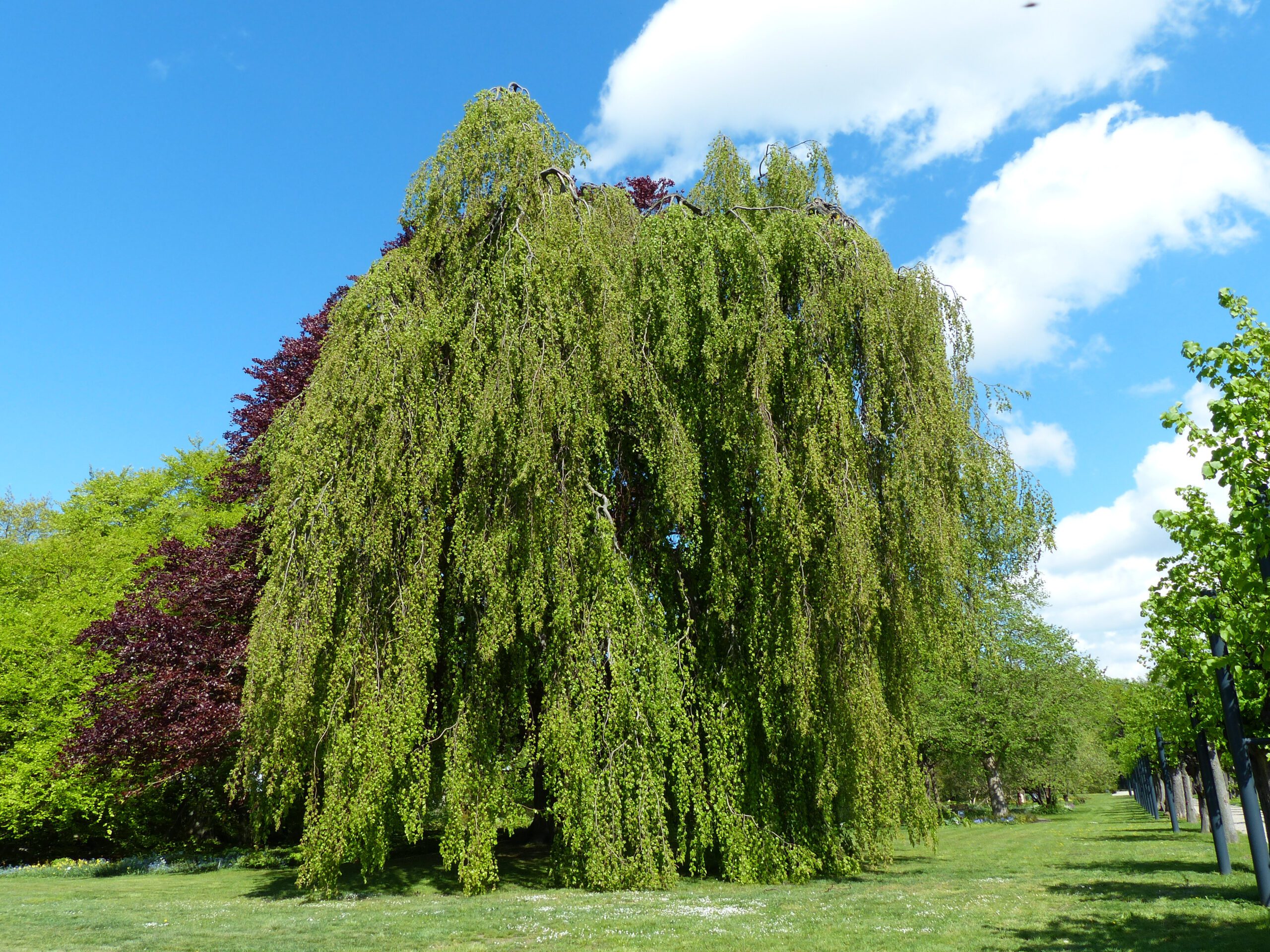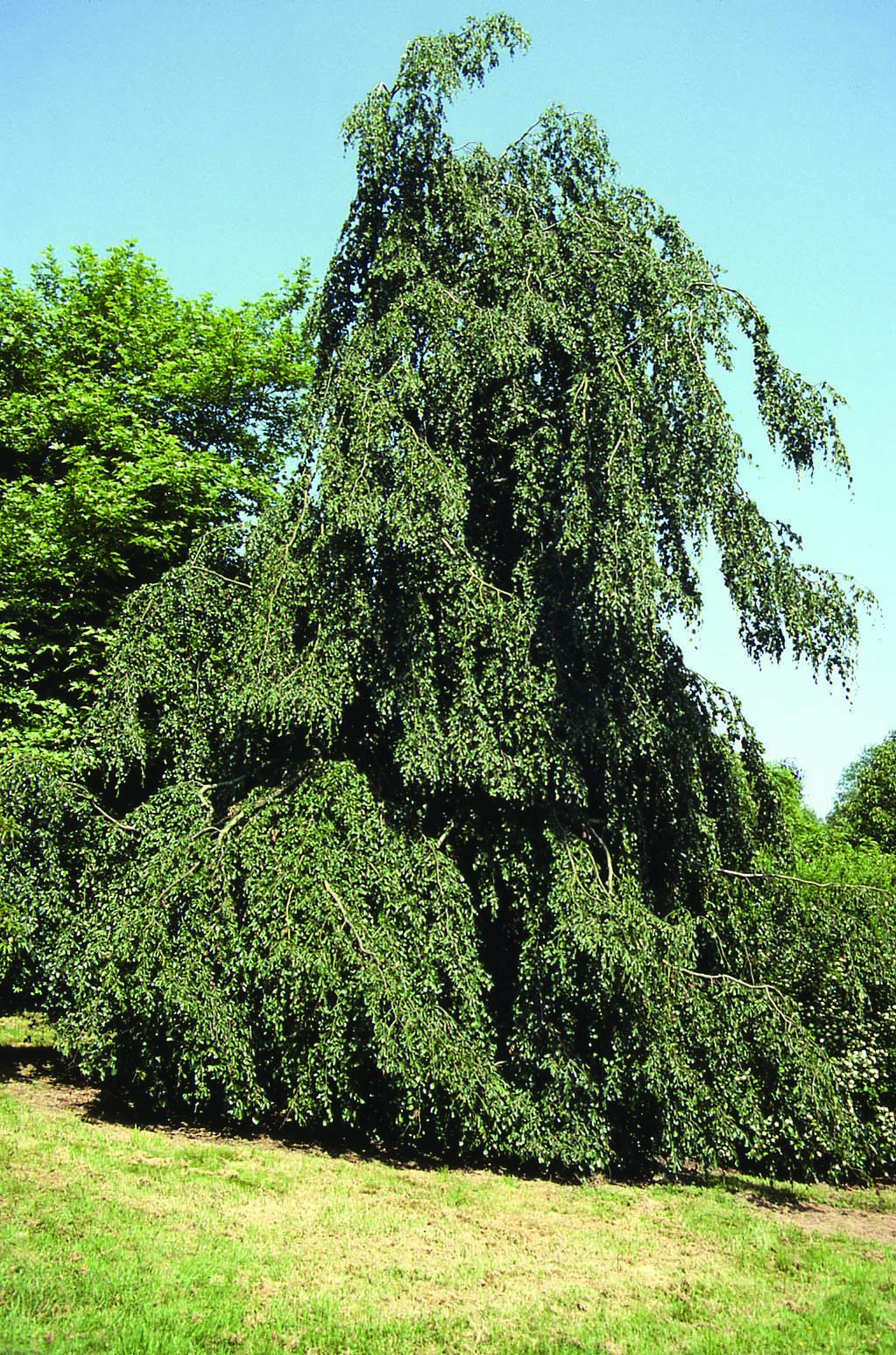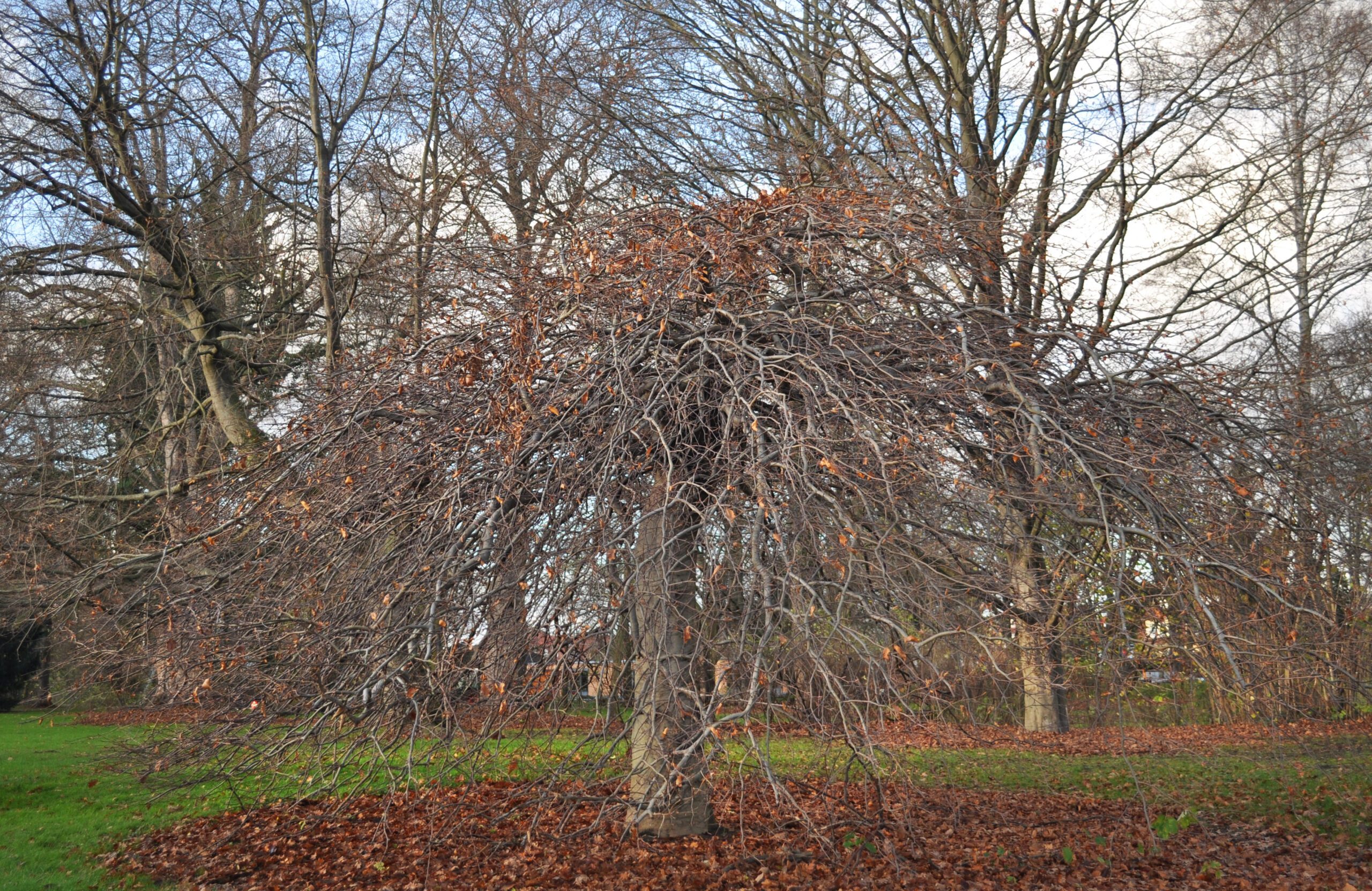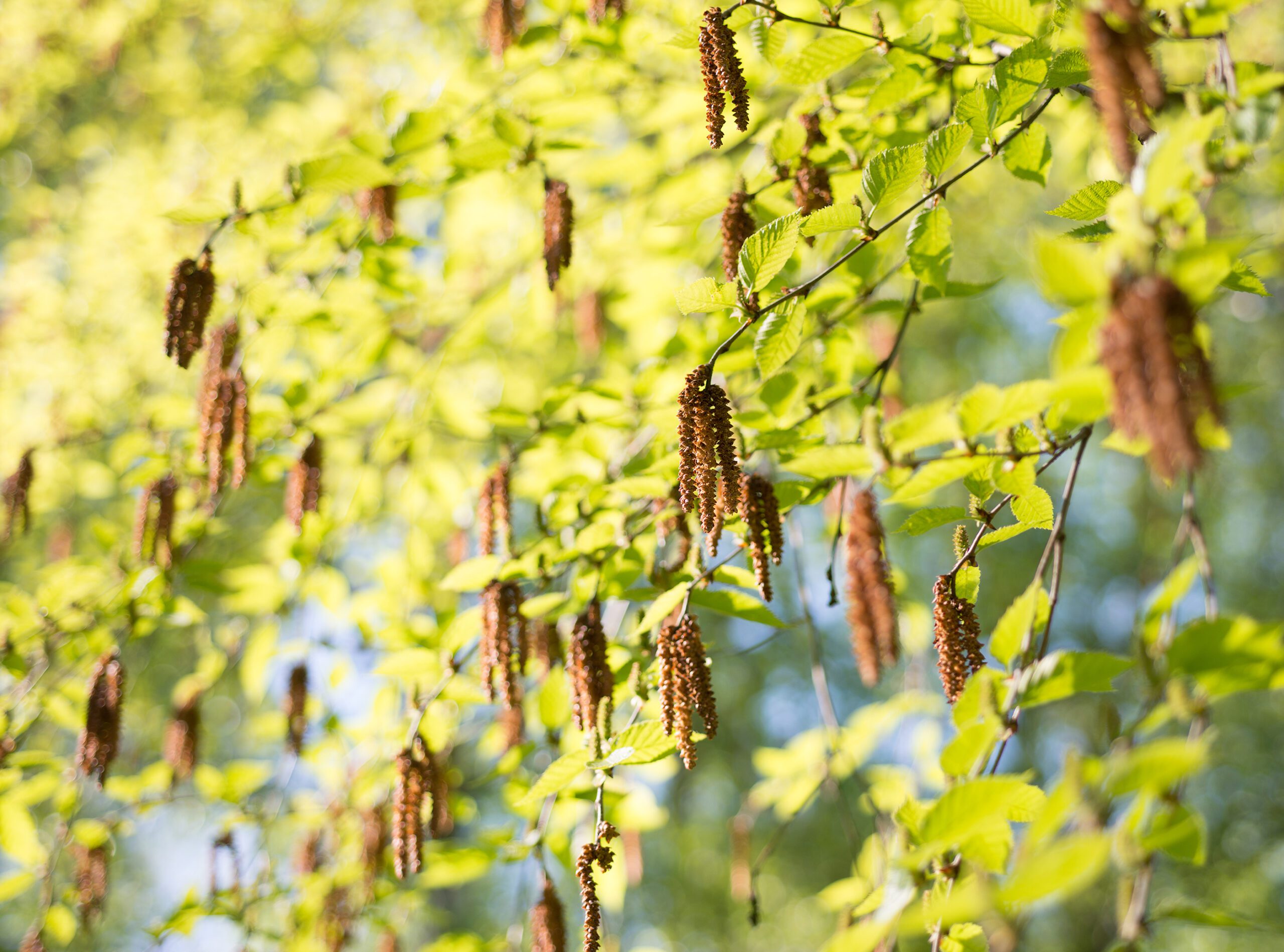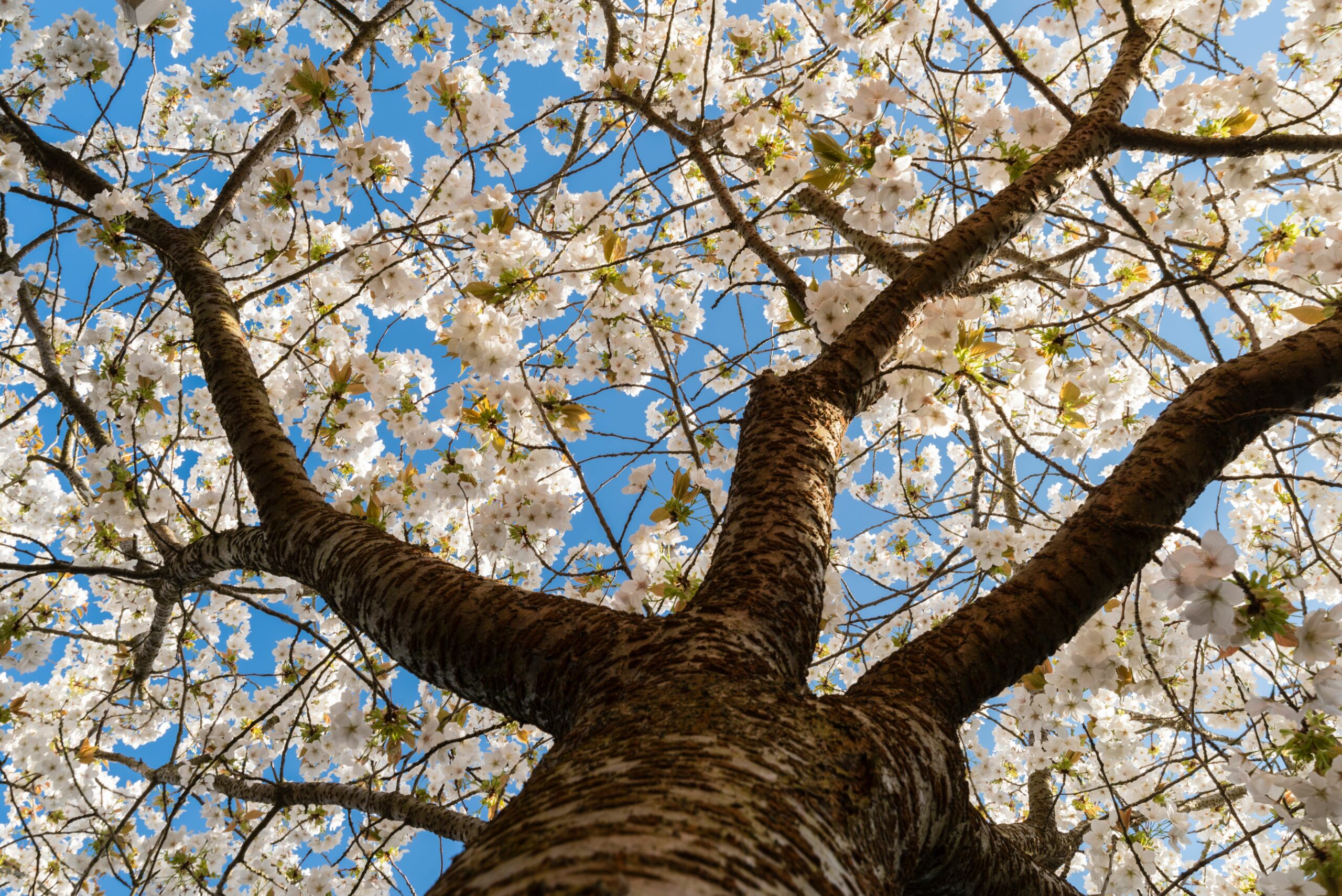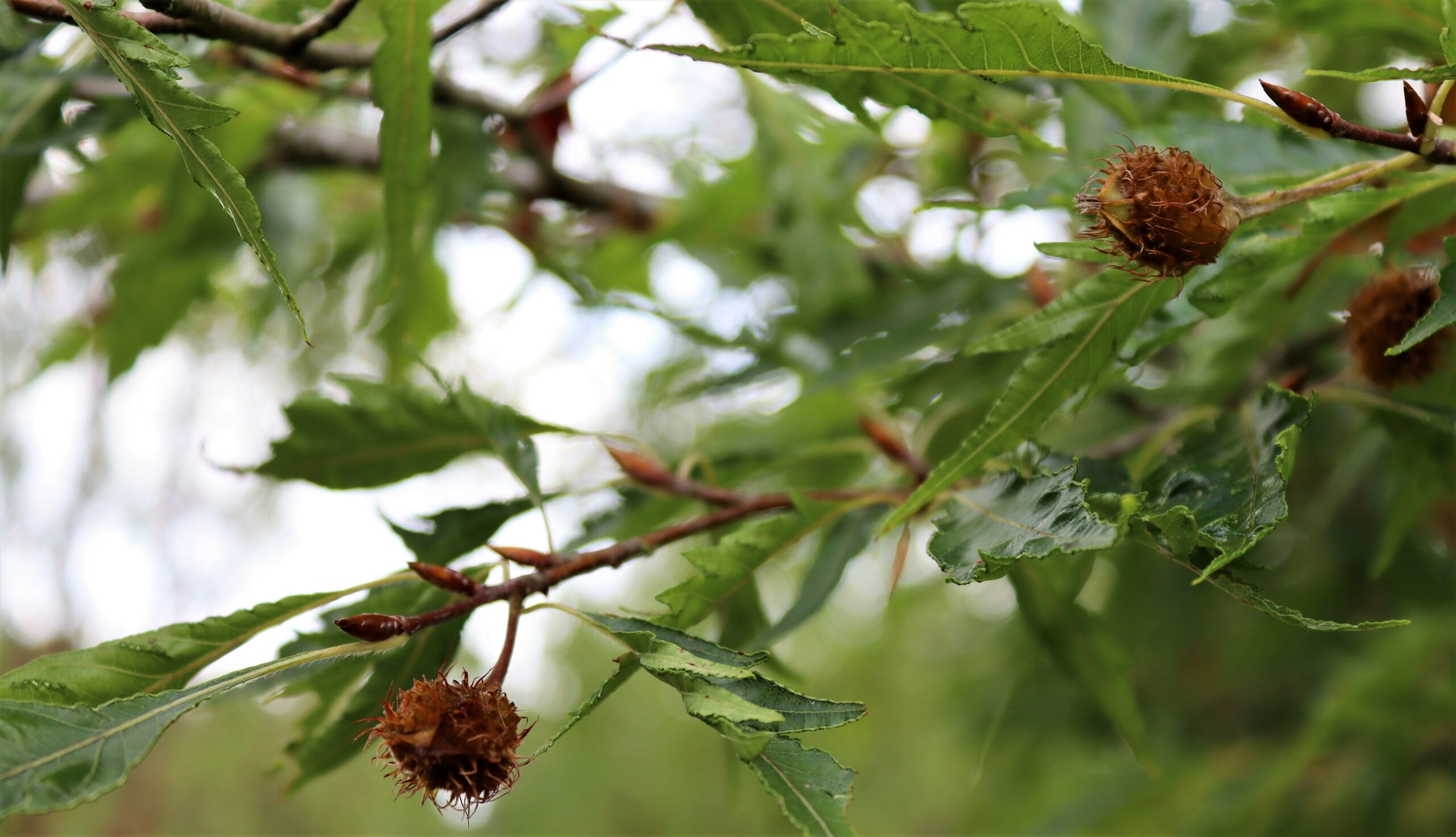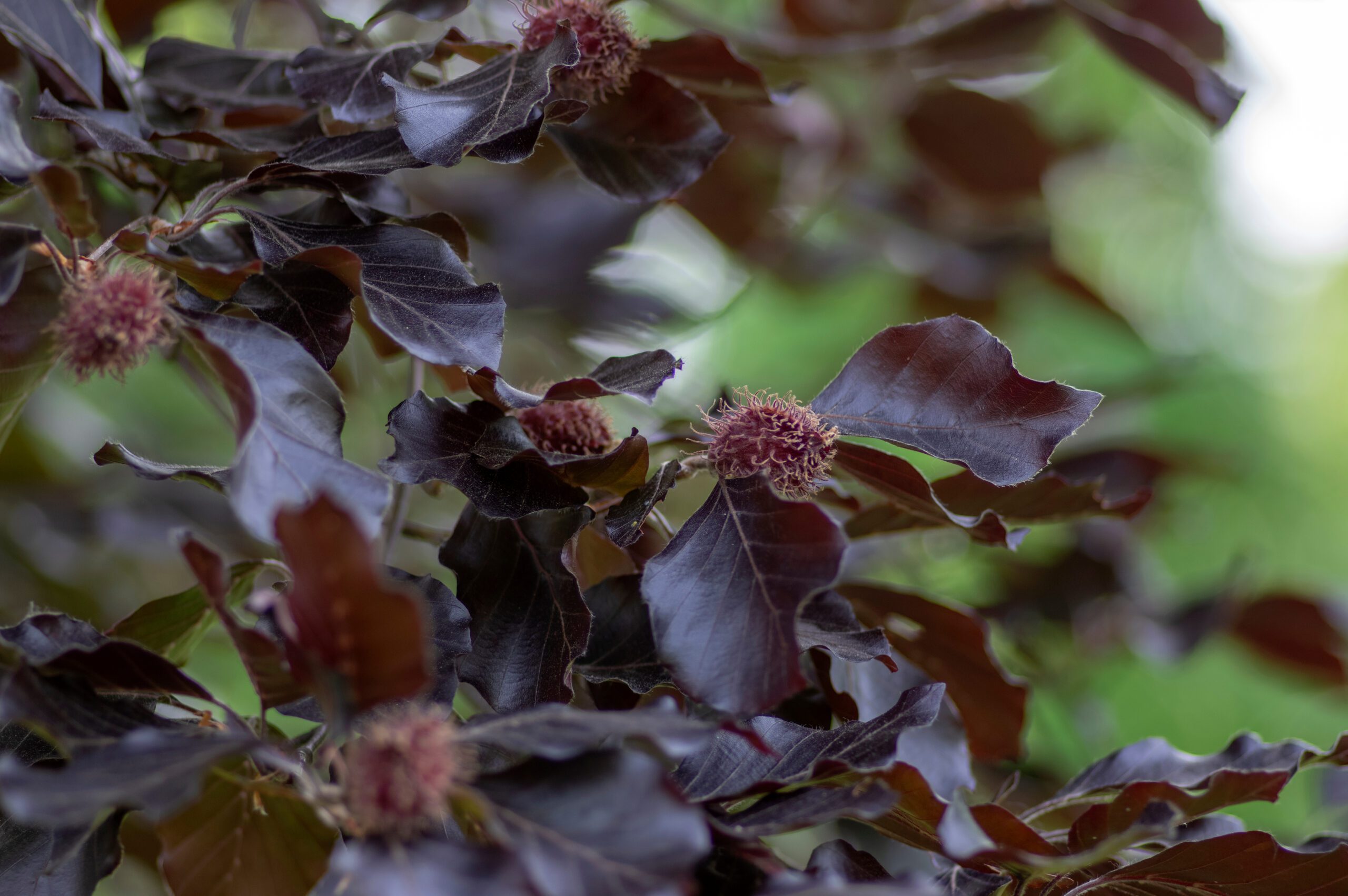Tree Information
Specialities
Tolerances
Wet Soil: Low
Dry Soil: Medium
Lime: Medium
A form that can occur naturally in the wild, however, attempting to propagate the Weeping Beech from its seed rarely results in another tree of the same kind. The term ‘Beech Pendula’ specifically refers to the variety initially introduced by George Loddiges at his nursery near London in 1836.
This majestic tree stands out with its elegant pendulous form. Although its growth rate is leisurely, its mature appearance reveals robust limbs that gracefully droop, blending into the scenery with delicate, small-leaved branches. Initially upright, its central trunk gradually arches and extends outward as it matures, echoing the downward sweep of its canopy. Its expansive breadth is accentuated by its vibrant green foliage, forming a veil of leaves during the summer. As winter approaches, these leaves transition to captivating shades of gold and warm browns. In protected environments, they linger on the tree throughout winter, slightly revealing the intricate weeping structure beneath.
The Weeping Beech demands both time and adequate space to flourish harmoniously within its surroundings. It’s ideally suited for enhancing pathways, university campuses, and upscale residential areas where its unique form can be truly appreciated.
Visit our Useful Resources for in-depth guides
Discover guides to help you with specifying your trees, caring for your trees and understanding the weights and dimensions of trees.
Useful ResourcesSize
Large
9m high x 6m wide after 25 years
Environment
Its broad weeping canopy can establish wider than it is tall, maturing over time into a fantastic specimen feature. Plant in a location which will grant it the time and space for future generations to enjoy its full potential. Ideal for large parks, heritage sites and prominent estates.
Canopy
A weeping form that grows according to its surrounds. Sometimes limbs are ascending, with relaxed branches which hang down to the floor. In other locations the branches grow horizontal, reaching out wide whilst draped in limb hanging branchlets.
Foliage
Buds break in the middle of spring when its leaves unfold. These become a vibrant lime green which hang almost to the ground in grace branchlets. In autumn, the leaves bronze and become a russet brown. They hold on to the canopy throughout winter.
Resilience
Not demanding of soil type, it requires a free draining structure that does not waterlog.
Available As:
Semi-Mature, Super Semi-Mature
Make an Enquiry
Enquire below and speak to one of our expert team. For trades only, for general public enquiries click here.
Find Trees For Your Project
View Our TreesSpeak to a Member of Our Sales Team
Make an Enquiry
